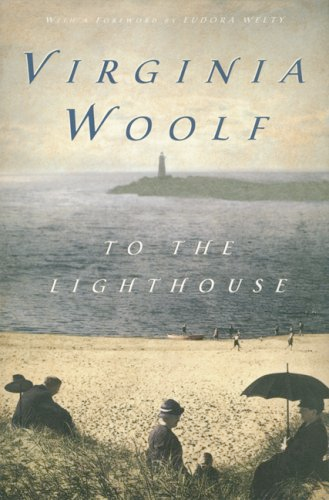
Virginia Woolf's "To the Lighthouse" is a book which entreats readers to introspect on the ideas of time, meaning, and relationships. The narrative is told through a "stream of consciousness", where characters' thoughts waft in and out of scene in a manner which sometimes to me comes across as haphazard, but if Woolf's intent was to portray her characters and their interactions with as great an intimacy as possible I suppose she may have succeeded.
The story is split into three parts. In the first, we experience one detailed afternoon at the summer home of the "Ramsay's" in the Hebrides. We are introduced to some principal characters:
- Mr. Ramsay: An eccentric, introverted philosopher.
- Mrs. Ramsay: A beautiful, graceful and intelligent mother.
- Lily Briscoe: An abstract artist who works on a painting of life.
- James Ramsay: A child who wants to visit the lighthouse, loves his mother, and detests his father.
In the second part, we experience ten years of absence. We see the Ramsay's summer house go uninhabited (except occasional visits from an old cleaning lady) during World War I, and a number of characters die abruptly (Mrs. Ramsay, a few of her children). And in the final part, some of the characters return and we travel with Mr. Ramsay, James and his sister to the lighthouse, and also are present with Lily Briscoe as she finishes her painting to close out the novel.
I cannot understate how difficult of a read this was. Perhaps if I were more relaxed it would have gone more smoothly, but in my case every paragraph was a struggle to get through. Again, this may be my own fault, but it definitely had an impact on my feelings towards this book.
Despite my struggling I can appreciate Woolf's attempt to write something radical in form and purpose. I am not going to consider this among my favorite books, but I do think that reading it has pushed some new questions and ideas into my mind that I value.
Without further ado, here is my favorite quote from "To the Lighthouse":
Lily Briscoe is working on her painting in the final part and decides to take a break.
She must rest for a moment. And, resting, looking from one to the other vaguely, the old question which traversed the sky of the soul perpetually, the vast, the general question which was apt to particularise itself at such moments as these, when she released faculties that had been on the strain, stood over her, paused over her, darkened over her. What is the meaning of life? That was all--a simple question; one that tended to close in on one with years. The great revelation had never come. The great revelation perhaps never did come. Instead there were little daily miracles, illuminations, matches struck unexpectedly in the dark; here was one. This, that, and the other; herself and Charles Tansley and the breaking wave; Mrs. Ramsay bringing them together; Mrs. Ramsay saying, "Life stand still here"; Mrs. Ramsay making of the moment something permanent (as in another sphere Lily herself tried to make of the moment something permanent)--this was of the nature of a revelation. In the midst of chaos there was shape; this eternal passing and flowing (she looked at the clouds going and the leaves shaking) was struck into stability. Life stand still here, Mrs. Ramsay said.
-Peter V.